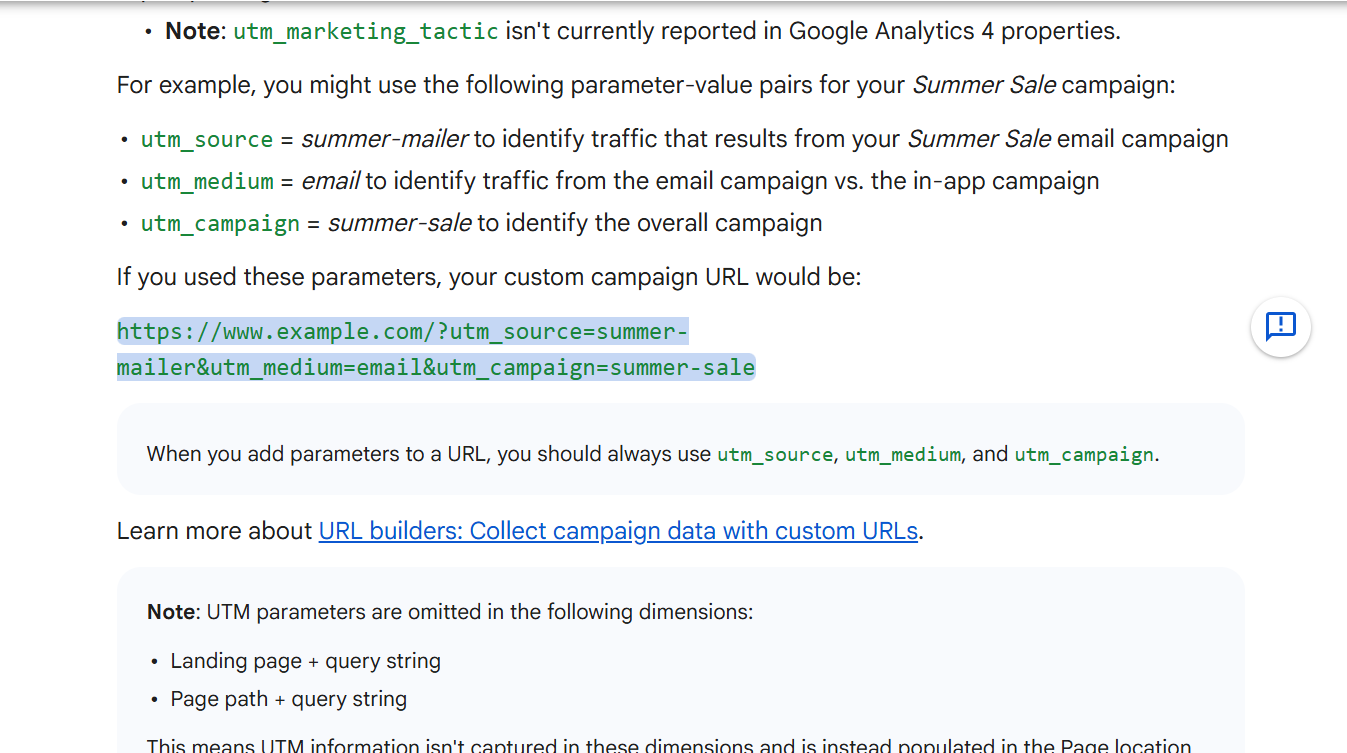Setting Up Conversion
Tracking and Leveraging UTM_Source for Data-Driven
Decision Making
Conversion tracking is a crucial aspect of measuring the
effectiveness of your marketing campaigns and making data-driven decisions.
Let’s explore how to set up conversion tracking correctly and leverage UTM_source to attribute conversions to specific sources.
Why is Conversion Tracking Important?
Conversion tracking helps you measure the number of visitors
who complete a desired action on your website, such as filling out a contact
form, making a purchase, or downloading an e-book. By tracking conversions, you
can:
– Measure campaign effectiveness:
Evaluate the performance of your marketing campaigns and identify areas for
improvement.
– Optimize marketing strategies:
Use conversion data to optimize your marketing strategies and improve ROI.
– Make data-driven decisions:
Make informed decisions about your marketing budget and resource allocation.
Setting Up Conversion Tracking in Google Analytics
To set up conversion tracking in Google Analytics, follow
these steps:
1. Create a new goal: In your
Google Analytics account, navigate to the "Admin" section and click
on "Goals".
2. Choose a goal type: Select the
type of conversion you want to track, such as "Destination",
"Event", or "Duration".
3. Set up goal details: Enter the
details of your conversion, such as the URL of the thank-you page or the event
trigger.
4. Assign a value: Assign a
monetary value to your conversion, if applicable.
Setting Up Conversion Tracking in Google Tag Manager
To set up conversion tracking in Google Tag Manager, follow
these steps:
1. Create a new tag: In your
Google Tag Manager account, click on "Tags" and then "New".
2. Choose a tag type: Select the
type of conversion you want to track, such as "Google Analytics" or
"Conversion Tracking".
3. Set up tag details: Enter the
details of your conversion, such as the trigger event or the conversion value.
4. Publish the tag: Publish the
tag to make it live on your website.
Leveraging UTM_Source for Attribution Modelling
UTM_source is a parameter that
helps you attribute conversions to specific sources, such as social media,
email, or paid advertising. By using UTM_source, you
can:
– Attribute conversions to
specific sources: Identify the sources driving conversions and optimize your
marketing strategies accordingly.
– Track the effectiveness of
different sources: Evaluate the performance of different sources and allocate
your marketing budget effectively.
– Optimize marketing campaigns: Use UTM_source data to optimize your marketing campaigns and improve ROI.

Example of UTM_Source in Conversion Tracking
Suppose you’re running a paid advertising campaign on
Facebook, and you want to track the conversions generated from this campaign.
You can add the following UTM parameters to your Facebook ad:
utm_source=facebook&utm_medium=paid_social&utm_campaign=spring_sale
When a user clicks on your ad and completes a conversion on
your website, the UTM_source parameter will be
attributed to the conversion. You can then track the conversions generated from
your Facebook ad campaign using the UTM_source
parameter.
Best Practices for Conversion Tracking and UTM_Source
1. Set clear goals: Establish
clear goals and objectives for your conversion tracking.
2. Use descriptive names: Use
descriptive names for your goals and tags to make them easy to identify.
3. Test and validate: Test and
validate your conversion tracking setup to ensure accuracy.
4. Monitor and adjust:
Continuously monitor your conversion tracking data and adjust your setup as
needed.
5. Use UTM_source consistently: Use UTM_source consistently across all your marketing campaigns to ensure accurate attribution modelling.
What we can Conclude ?
By implementing these best practices and leveraging UTM_source, you’ll be able to make data-driven decisions to
optimize your marketing strategies and improve your ROI.
Need help with setting up conversion tracking or optimizing
your marketing campaigns? Clarifu Infotech
has the expertise to help you improve your business growth with better tracking
and performance options during your SEO and Google
Ad Campaigns. Contact us today to learn more!

